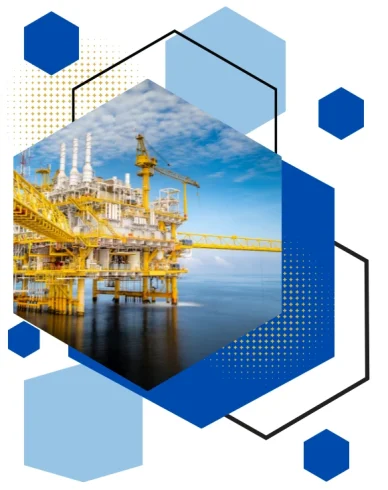Foam is a serious challenge in various oil and gas operations. It reduces efficiency, increases processing time, and damages equipment. That’s why defoamers for oil & gas are critical across multiple stages:
Oil Extraction: Foam can interfere with the separation of oil, gas, and water. Using defoamers improves extraction efficiency and ensures smoother upstream operations.
Cementing Section: During well cementing, foam formation can lead to poor cement bonding. Defoamers eliminate air entrainment, ensuring structural integrity of the well.
Oil and Gas (Water) Separation: Defoamers accelerate the separation of oil, gas, and water phases, preventing overflow and enhancing system throughput.
Gas Scrubbing: Foam buildup in gas scrubbers reduces contact efficiency and increases pressure drop. Defoamers ensure uninterrupted operation of scrubbing units.
Delayed Coking: In this thermal process, foam can disrupt coke drum operations. Defoamers minimize foam height, enhancing coke quality and operational safety.
Oil Transportation: Foam can cause measurement errors and flow inconsistencies in pipelines. Defoamers help maintain accurate volume and pressure during transport.
Effective foam control improves system reliability, lowers downtime, and protects expensive equipment—making defoamers essential in oil and gas processing.






